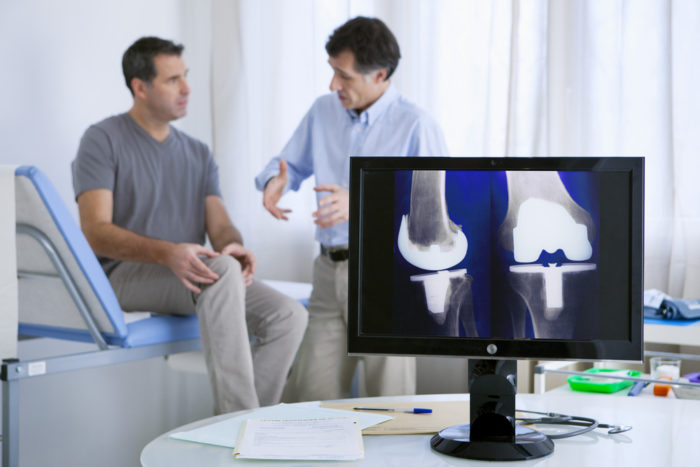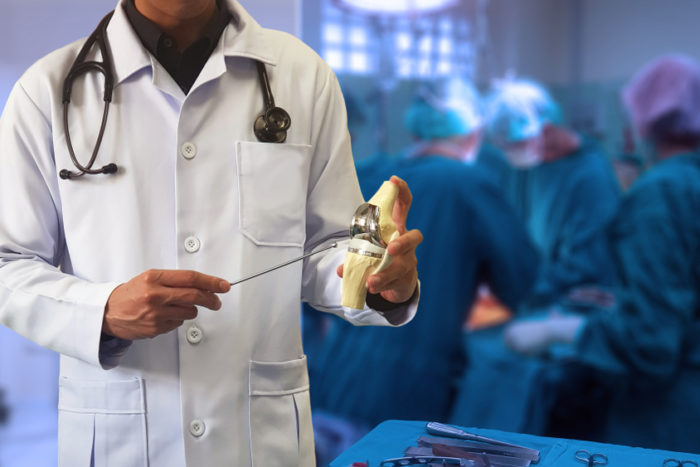Replacing a joint through joint replacement surgery, such as knee or hip replacement, does not cure arthritis. Arthritis is a chronic condition characterized by inflammation and degeneration of the joint cartilage, leading to pain, stiffness, and reduced joint function. Joint…
Total joint replacement surgery is generally safe and successful, but it carries some risks and potential complications like any surgery. Complications following total joint replacement surgery may include: Infection: Infection is a possible complication after joint replacement surgery. It can…
The success rate of joint replacement surgery is generally very high, with most patients experiencing significant pain relief and improved joint function. The procedure's success is often measured based on the longevity of the joint replacement, the level of pain…
Yes, joint replacement surgery is considered major surgery. It involves replacing a damaged or diseased joint with an artificial implant, a significant and complex medical procedure. Joint replacement surgeries are typically performed by orthopedic surgeons specializing in this type. During…
The ease of joint replacement surgery is not solely determined by the type of joint being replaced but also by several factors, including the surgeon's experience, the patient's overall health, the severity of joint damage, and any pre-existing medical conditions.…
Total joint replacements continue to improve in longevity as technology and materials improve. The anticipated life span of joint replacements has been extended to 15–20 years through the use of newer materials and surgical techniques. It is not uncommon to…
Depending on the joint being replaced, the surgery might involve only a portion of the joint or the entire joint. Joint replacement options are available for the ankle, knee, hip, wrist, elbow, and shoulder. Hips and knees are the most…
Hip and knee joints are the most commonly replaced joints that receive physical therapy rehabilitation following surgery. A person's quality of life can be significantly improved by ankle and shoulder replacements, although they aren't as common as hip or knee…
Aseptic loosening may occur when a joint wears out. When aseptic loosening occurs, the implants become loose due to debris developing within the joint, usually due to friction between the replacement and the spacer. In addition to groin pain that…








